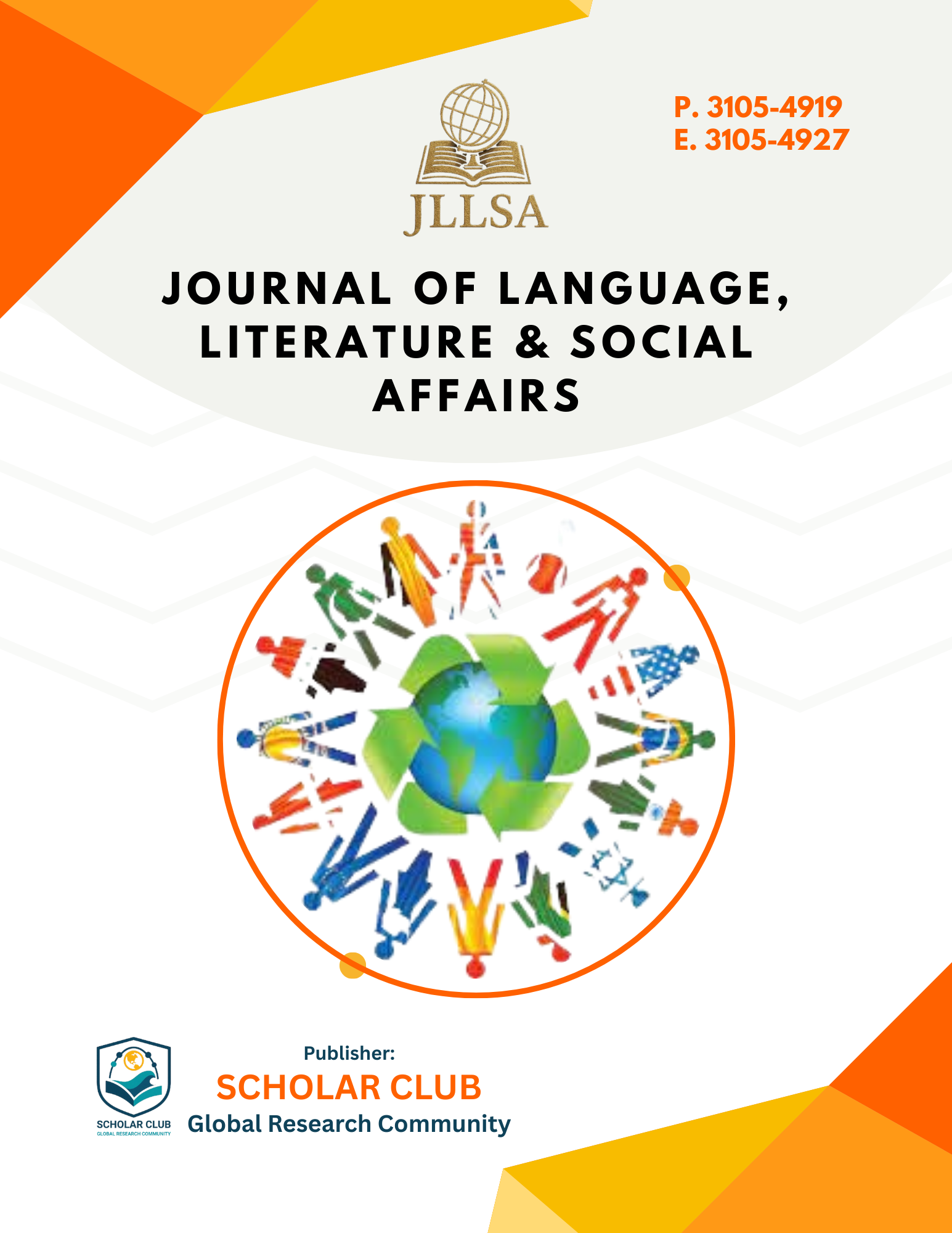Dialogism and Heteroglossia: A Bakhtinian Reading of The Hungry Stones
DOI:
https://doi.org/10.63056/jllsa.1.1.2025.7Keywords:
Rabindranath Tagore, The Hungry Stones, dialogism, heteroglossia, Mikhail Bakhtin, postcolonial narratives, multiple voicesAbstract
Tagore’s short story The Hungry Stones is usually perceived for its gothic and supernatural qualities which are generally seen as metaphors for the past and the world of spirits. A lot of academic research has highlighted Gothic romanticism and colonial/postcolonial themes in the novel, while the blend of voices that make up the narrative have received less attention. Therefore, through the use of qualitative textual analysis, this study aims to analyze The Hungry Stones using Mikhail Bakhtin’s concepts of dialogism, and heteroglossia to explore how multiple voices coexist and interact within the text. The findings of the study reveal the narrative structure through its layered voices and shifting perspectives, and creates a polyphonic space where truth is neither singular nor fixed. This dialogic framework positions the story as a dynamic cultural artifact negotiating between modernity, memory, and identity.
Downloads
Published
How to Cite
Issue
Section
License
Copyright (c) 2025 Wareesha Rukhsar

This work is licensed under a Creative Commons Attribution 4.0 International License.







